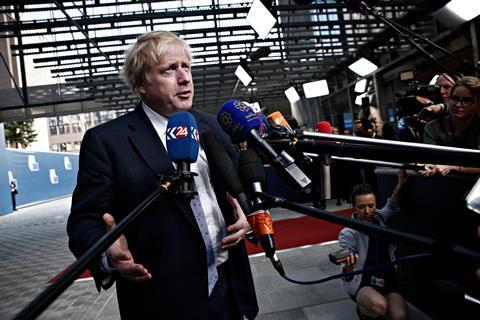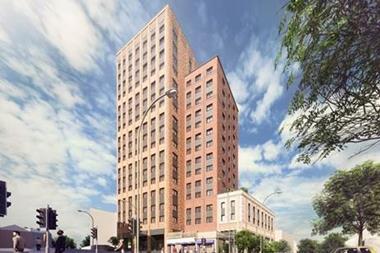The UK property industry has cautiously welcomed Boris Johnson’s election as the new Conservative leader, and future prime minister.

Johnson comfortably beat fellow contender Jeremy Hunt with 92,153 votes to 46,656.
Melanie Leech, chief executive of the British Property Federation said: “We welcome Boris Johnson as the UK’s next prime minister – and the property sector stands ready to work with his government, building on the announcement yesterday of a Built Environment Sector Deal.
“We also urge Johnson to bring forward, and get agreement to, proposals for an orderly Brexit. The UK must remain open, with the right conditions for investment and trade, to ensure we remain first choice for global talent as a place to live, study and work.”
Grainne Gilmore, head of UK Residential Research at Knight Frank, said: “Boris Johnson’s to-do list may be dominated by Brexit, but addressing the pressing issues in the housing market across the UK will also be key.
“Housing delivery in England needs to rise by 25% to meet the government’s target of 300,000 new homes a year by mid-2020. Meanwhile the number of new housing starts peaked in 2016, and nearly half of all local authorities are set to miss their housing targets next year, according to the National Audit Office.”
Johnson has already proposed raising the 40p income tax rate from £50,000 to £80,000 to help middle income earners. Johnson is also reportedly considering radical proposals to reform stamp duty.
Gilmore added: “The new prime minister has made no secret of his desire to reform stamp duty. Such a move would help unlock some parts of the market where the fees to buy a new home have escalated rapidly in recent years, slowing activity, and in some cases deterring downsizers.
“Allowing downsizers to free up family homes is essential for a market that wants to use its housing efficiently.”
Johnson has also promised a review of the HS2 project, a move that many think would see him repurpose the giant infrastructure investment to prioritise support for the so-called Northern Powerhouse.
This could see him look to build the Birmingham to Manchester section ahead of the London to Birmingham element, or prioritising the electrification of the Pennines rail system.
However, not all reaction to his election win has been positive. Ben Derbyshire, HTA design chair and president of RIBA, said: ”If Boris delivers his threatened no-deal Brexit it would be a disaster for the development industry and homebuilding especially, with massive disruption to finance, the supply chain and movement of labour. There is very little that either Michael Gove or Zac Goldsmith, both tipped for environment secretary, could do about that.
“But one might hope that either of them could make something of the proposed New Homes Standard, which needs to be a new zero carbon standard for all homes, not just new ones.”
Betfair has already posted odds on a No-Deal Brexit, whether Britain will leave the EU by the 31 October and how soon a general election could be:
UK to Brexit by end of October
- Yes – (29% chance)
- No - (71% )
No Deal Brexit
- Yes – (29% chance)
- No – (71%)
Year of Next General Election””
- 2019 - (45% chance)
- 2020 – (32%)
- 2021 – (6%)
- 2022 – (18%)





























No comments yet